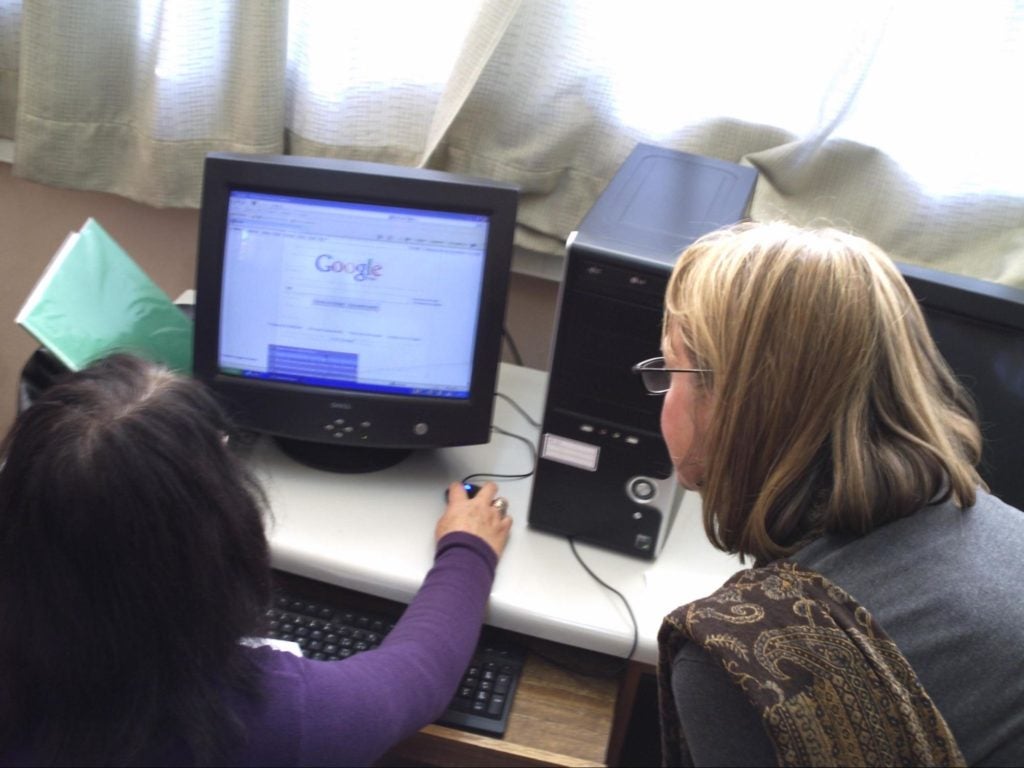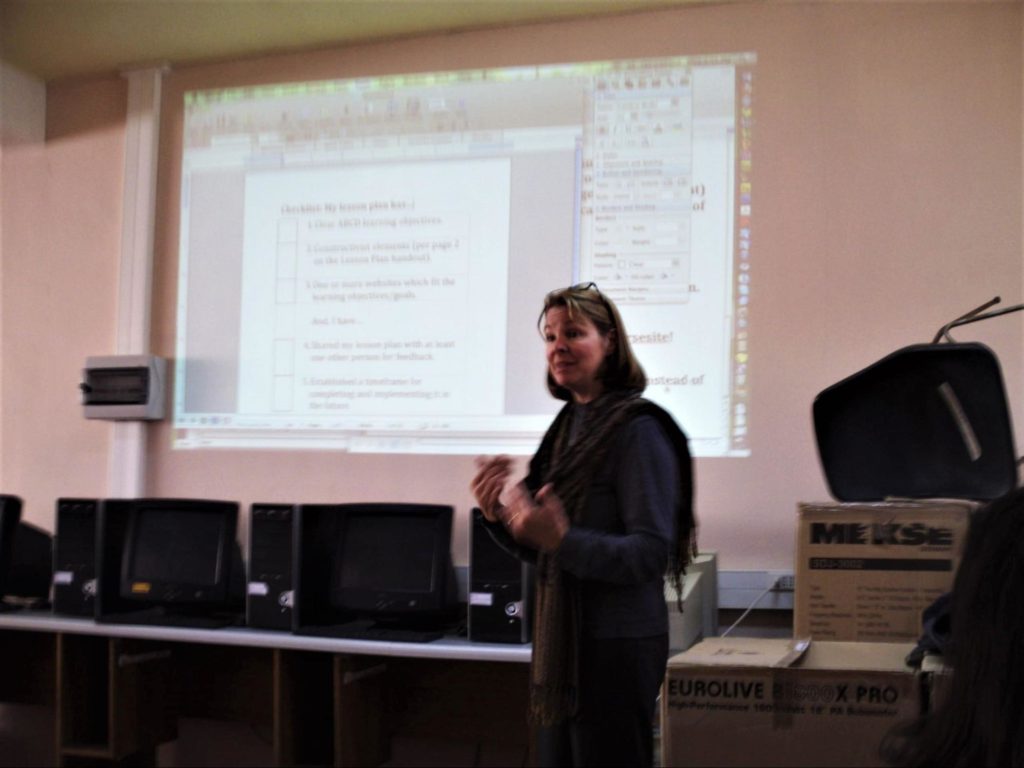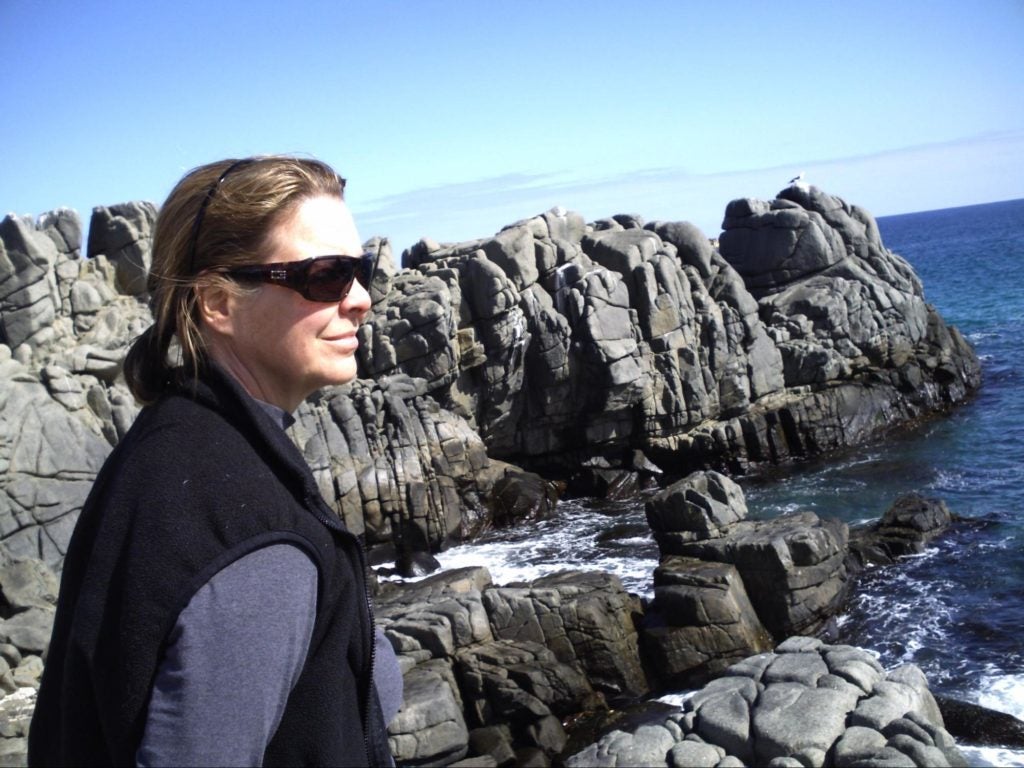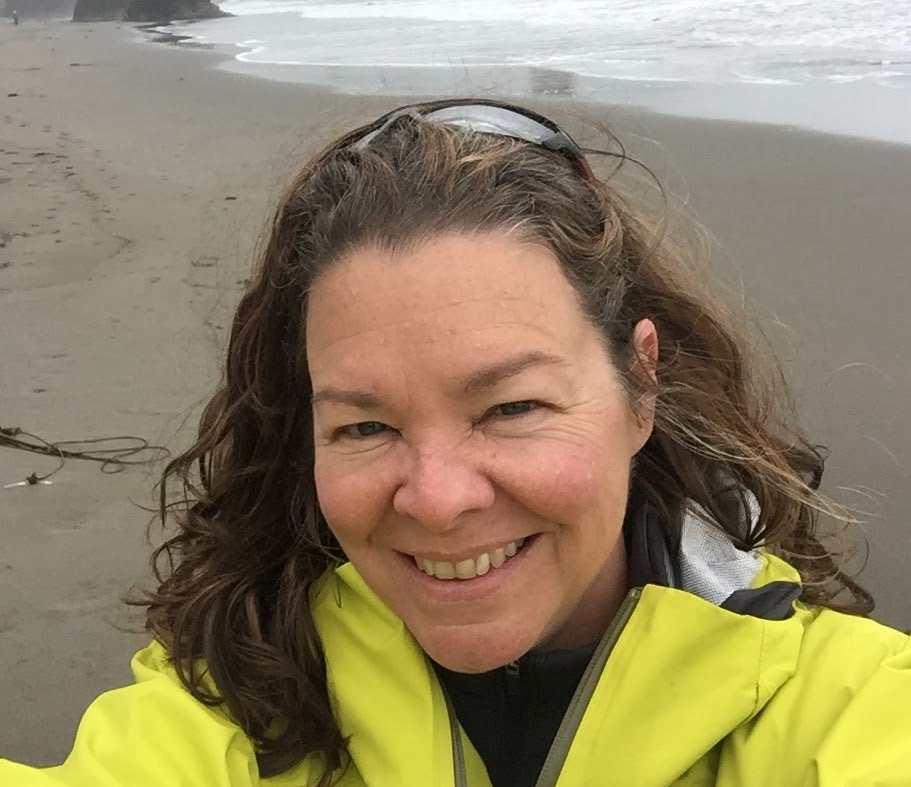“The common thread throughout my career has been technology, not as an end goal but as a means to our objective as English language educators: to enhance learning.”
Dr. Leslie Opp-Beckman was prescient in recognizing the far-reaching potential of computer technology as an educational tool for English language teaching and learning. It was the mid-1990s, not long after the invention of the now ubiquitous World Wide Web, and Opp-Beckman, then an instructor at the University of Oregon’s American English Institute, was exploring ways to use this new communication tool to support language education while also developing frameworks for teachers to evaluate Web resources based on their specific classroom needs. As Opp-Beckman recalls, “Those early days of the internet were overwhelming. Rather than surfing the Web, educators often felt they were drowning in it.” Her early interest in and aptitude for computer-assisted language learning led to publications and presentations, and a growing reputation as a go-to educator on the topic. Not surprisingly, when the U.S. Department of State’s Bureau of Educational and Cultural Affairs decided 25 years ago to establish an internet presence for materials that supported its English Language Programs (ELP), Opp-Beckman and her colleagues at the University of Oregon were chosen to help develop the site and put it into operation. “The common thread throughout my career has been technology, not as an end goal but as a means to our objective as English language educators: to enhance learning,” says Opp-Beckman.

Indeed, that thread is tightly woven throughout her English Language Specialist career, from her first assignments, when computer-assisted language learning (CALL) was in its infancy, to today. In 2003, Opp-Beckman was assigned to lead teacher trainings in Costa Rica, where the Ministry of Education, recognizing the benefit that computers could bring to primary and secondary school teachers and students, particularly in rural areas and low-income urban neighborhoods, purchased desktop computers and built computer labs in schools that met government-mandated criteria. The goal was straightforward: provide teachers with the technology to help them do their jobs more effectively. “The government had amazing foresight to implement this program, upgrading school infrastructures by installing computer labs, facilitating teacher trainings, and engaging community members for ongoing support — the program truly pushed Costa Rica’s pedagogical envelope,” says Opp-Beckman, whose Specialist role was to train teachers to learn the technology, explore available resources, and subsequently become trainers in their own institutions and regions. “I considered my job to be similar to that of an orchestra leader, bringing all the pieces together into a harmonious whole and arriving at a point at which the local partners — administrators, teachers, and others involved — could move forward and build on what we’d done together.”

While her assignment was clear-cut, as a seasoned Specialist Opp-Beckman knew to expect the unexpected, as happened with her first Costa Rica training. When she entered that high school’s computer lab, ready to conduct her teacher training, she came upon a roomful of participants and unopened boxes of computers. Opp-Beckman handled the situation with ease. “My years as a Specialist had taught me that it’s not unusual to show up at a site and find the equipment is not ready,” she says. “We did what we had to do — got computers out of boxes and set them up so we could run the sessions. My attitude is, ‘We’ll make it work. We can change the schedule, adapt the goals — I’ve got a million back-up plans. Now, let’s all take a deep breath and have fun with this.’” Once the computers were installed, that is exactly what they did. Opp-Beckman first addressed workshop expectations, asking participants what their goals were, so she could gear the training to meet their needs. “I never impose my goals but rather focus on meeting those of the constituents,” she notes. Toward that end, she spent a portion of each day going over computer resources that complemented their English language curriculum. She also held a session titled “Making the Most of What You’ve Got,” during which she addressed how teachers could incorporate technology into their classes on days when students were not in the computer lab. Given the number of classes vying for those computers, she knew lab time would be limited, but Opp-Beckman told participants that this did not mean CALL should be abandoned, particularly since each classroom in the school typically had one serviceable computer on hand. Toward that end, she discussed ways to incorporate project-based activities during which groups of students could be cycled through that single computer while other students worked on different tasks. That met another of Opp-Beckman’s objectives. “I wanted them to understand the importance of self-directed learning and how it benefits students,” she says. Again, she always asked teachers for their ideas and feedback. “Trainings are a two-way exchange of information. These participants were talented, creative, motivated educators, and I had a lot to learn from them.”

Jump forward six years, and Opp-Beckman, this time on a Specialist assignment in Brazil, was still advancing the benefits of CALL but in the short timespan since her trainings in Costa Rica, that field had experienced tremendous growth. One of the primary purposes of this assignment was to conduct workshops that incorporated lessons from English Language Programs’ recently created online teacher training course, Shaping the Way We Teach English, which Opp-Beckman was central in developing. “The internet had quickly matured,” says Opp-Beckman, and information on new Web-based English language teaching resources was in such demand that, when she arrived at one training, 300 educators — more than triple the number expected — were packed into the auditorium. “The focus may have been technology but here I was, figuring out on the fly how to conduct this workshop with such a large group, not enough materials, and a room filled with chairs bolted to the floor,” says Opp-Beckman. Rather than lead with technology, she went with her instincts and warmed up the standing-room-only crowd with the classic children’s clapping game “We’re Going on a Bear Hunt.” “It wasn’t high tech, but it was fun and rowdy,” she recollects. “What I always appreciated about assignments in that region was, not only would participants be willing to come to the table and collaborate, but the tenor of the room would always be warm and welcoming. And if asked, everyone would be on their feet joining in.”

Dr. Leslie Opp-Beckman is Faculty Emeritus of the University of Oregon where she served as Director of Innovative Programming for the American English Institute and taught in the Language Teaching Studies MA Program. She has also developed and taught courses for the U.S. Department of State and AE E-Teacher Program for more than 20 years, and served as an English Language Specialist in more than 40 countries. Her research interests in TESOL include online and hybrid learning and teaching environments, curriculum and program development, the use of open educational resources and inclusive/accessible practices in teaching, and teacher training for everything from camps for youth to academic and specialized English for post-secondary levels. Her work includes the “Shaping the Way We Teach English” video-based teacher training materials and “Women Teaching Women English” materials for Lebanon.
